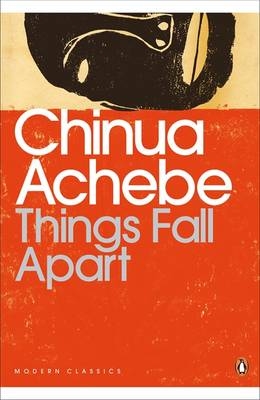A respected clansman – the strongest, fiercest and proudest – Okonkwo is the very symbol of masculinity and power in his Nigerian clan. Enter the British colonialists, waving their God and Queen and, within a few years, both Okonkwo and his Igbo village Umoufia are crushed. Things Fall Apart by Chinua Achebe, published in 1959, was the first account of colonialism from the perspective of the colonised. It was written in English and widely published in the West and is an arresting portrayal of the destruction of an indigenous community.
The novel, set in 1890s, centres around Okonkwo, his several wives and children. We follow their everyday lives, happiness and sorrows. Okonkwo is particularly concerned about his son Nwoye who shows too much softness for his liking. His daughter Ezinma has more promise of greatness but, as a girl has no prospects. The Umoufia community runs smoothly with its systems of justice, punishment, worship, courtship and marriage. There is an Oracle providing advice. Many of the customs and punishments will shock us today, the tradition of abandoning new born twins in the forest, for example, but these were the age-old traditions of the Igbo people.
In march British missionaries with what they believe is a superior religion, values, systems of government and justice and, crucially, weaponry. The rest is history as they say, but rarely has the destruction of an indigenous way of living been so convincingly portrayed. This is a universal story, it can be applied to colonised societies everywhere.
The white man is very clever. He came quietly and peaceably with his religion. We were amused at his foolishness and allowed him to stay. Now he has won our brothers, and our clan can no longer act like one. He has put a knife on the things that hold us together and we have fallen apart.
To reach his desired audience (the colonisers) Achebe selected the novel, the most English of forms. He also chose to write in English rather Igbo, which he felt would be too stilted to work in a novel. But Achebe wanted the experience of reading it to be Igbo and peppered it with proverbs and stories, typical of a language in the oral tradition. As a result, the writing feels a bit wooden at times. But in the context of what he was trying to do in Things Fall Apart, it works.
As you’d expect, the novel doesn’t end well. The most devastating and telling of all is its last crushing line, a testament to the arrogance at the heart of colonialism.
Things Fall Apart by Chinua Achebe is published by Penguin Books, 197 pages.





